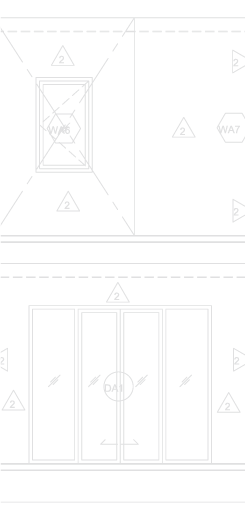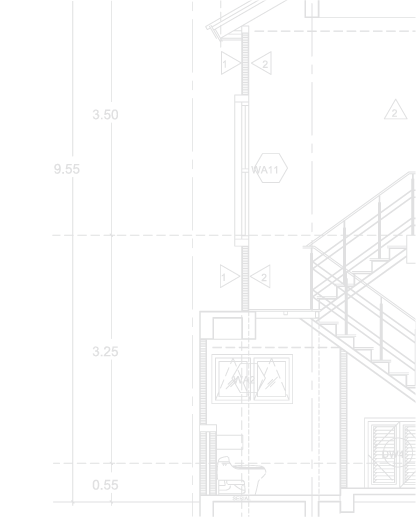Renovating Your Elevator: Top Common Mistakes
Renovating an elevator is an expensive, time-consuming process. So it’s best to be done the right way or you’ll risk incurring additional costs. Preparing for renovation day in advance can help you achieve an excellent final result that’s free from common elevator renovation mistakes that many people are prone to making.
Below is a list of such mistakes, along with handy tips on how to avoid making them.
7 top Elevator Cab Renovation Mistakes
1. Introducing Heavy Elements
A grand interior is not well-suited to every elevator, especially small ones with lower weight limits than their larger counterparts.
By introducing heavy, ornate decoration into the elevator cab, you are essentially reducing its ability to carry weight (people, in particular) – remember, elevators are a tool for vertical transportation against gravity, which is why it is best to stick to lightweight, practical interior designs. There is a minimum allowable net weight add threshold that must be adhered to if the finishes exceed the allowable weight a design review must be completed to ensure the installed equipment is capable for the extra weight. This can become very costly.
Heavier design options include:
- Decorative ceilings
- Large or bulky mirrors
- Concrete or marble floor tile
It’s better to avoid such elements. Keep this in mind before refreshing an elevator’s interior.
2. Opting for a Ornate Floor
The process of installing tile flooring within an elevator is not as straightforward as you might think. Not all elevators were created equal, and some of them may not support the direct installation of tiles. As a result, you may need to first install a plywood floor and then fit tiles upon it.
Unfortunately, not only does this increase the cost of renovation and redecoration, but it might also raise the floor’s height above the maximum allowance set by local governing bodies, though this limit may vary depending upon where you live.
3. Installing Stone Flooring
You might be surprised to know that stone floors have become an increasingly popular elevator trend in recent days, especially due to the minimalist movement that encourages the use of simple and sometimes organic textures in interior design.
However, despite their brilliant aesthetic and the recent rise in popularity, stone floors are not recommended for use in elevators because of how heavy they are. Employing them can reduce the elevator’s ability to carry a large load if the stone flooring is heavy enough.
4. Skipping the Handrails
Some people believe that by removing an elevator’s old, downtrodden handrails, they are maximizing its inner space, as well as getting the opportunity to forgo the cost of installing new ones. However, they forget that the benefits of installing handrails outstrip any potential negatives.
Handrails not only maximize comfort for those riding inside the elevator, but they also make the cab more user-friendly for those with disabilities. To meet current code for persons with disabilities handrails must be mounted on all non-access walls. This is within the current B-44 Elevator Code under Non-Mandatory appendix E.
Handrails may rust, corrode, or garner excessive scratches over time and may require replacement. So, be sure to install new ones after you remove their older counterparts!
5. Choosing Incorrectly Between Metal Refinishing and Cladding
Metal refinishing is not capable of covering deep scratches and dents, yet many people make the mistake of choosing metal refinishing when what the elevator really needs is a well-executed cladding job.
Cladding is also preferred over refinishing if the cab’s existing walls are covered with scratches or slightly corroded.
Though metal refinishing is not a suitable replacement for a cladding job, it is the perfect option for the removal of all the imperfections, like light scratches and stain marks, that the elevator’s walls have garnered over time.
Whether you opt for metal refinishing or cladding depends upon how badly damaged the elevator’s interior is, and it is best to take an expert’s opinion before finalizing your decision.
6. Hiring Unqualified Installers
Hiring an unqualified team to handle an elevator renovation job is never a smart move. Tradesmiths like construction workers and carpenters are not in a position to take on the demanding job of renovating an elevator.
Interior designers are no good for this purpose, either, which is why you’ll have to commission a well-reputed elevator renovation team to do the job for you. It is a requirement that anyone working on or in an elevator must be licensed to do so, or be directly supervised by some that is.
Professional elevator renovation workers are aware of the essential rules concerning elevator renovation and can keep an eye on vital statistics like material fire ratings, weight limits, and more.
Also, before hiring a team to work for you, be sure to look into their credentials and past projects. An experienced, well-reputed team will be able to deliver superior results significantly faster than an inexperienced counterpart, which is why it is important to look into credible options before hiring.
7. Delaying Renovations
Elevator cab renovations take time and can put the device out of use for a while, which is why most elevators are prone to experiencing renovation delays, even though they might need one urgently.
Renovating an elevator can take anywhere from a day to a week (or more, if there’s an extremely tedious task on hand). Halting the elevator for such a large amount of time can make transportation and movement difficult for some people, particularly if there’s only one elevator within the entire building.
Still, taking time out for renovation and redecorating is extremely important and should not be neglected, or the elevator’s condition will only deteriorate further.
To make up for any inconvenience caused by halting the elevator, the building’s management should ensure the presence of efficient alternatives, like stairs, a second elevator, or escalators if present.
If none of these options are available – or if taking the stairs will prove too hectic – renovations should be scheduled during hours of low rush. Weekends or off days for in-office elevators are ideal, whereas nighttime is perfect for elevators located within malls.
Rundown of Top Elevator Renovation Mistakes
- Introducing Heavy Elements
- Opting for Ornate Tile
- Installing Stone Flooring
- Skipping the Handrails
- Choosing Incorrectly Between Metal Refinishing and Cladding
- Hiring Unqualified Installers
- Delaying Renovations
Let Us Help You Avoid Common Elevator Renovation Mistakes
Our team at K-Elevators is fully equipped to handle all kinds of Toronto elevator cab renovations, making us an excellent choice for the task – contact our representatives for a free price quote today!





